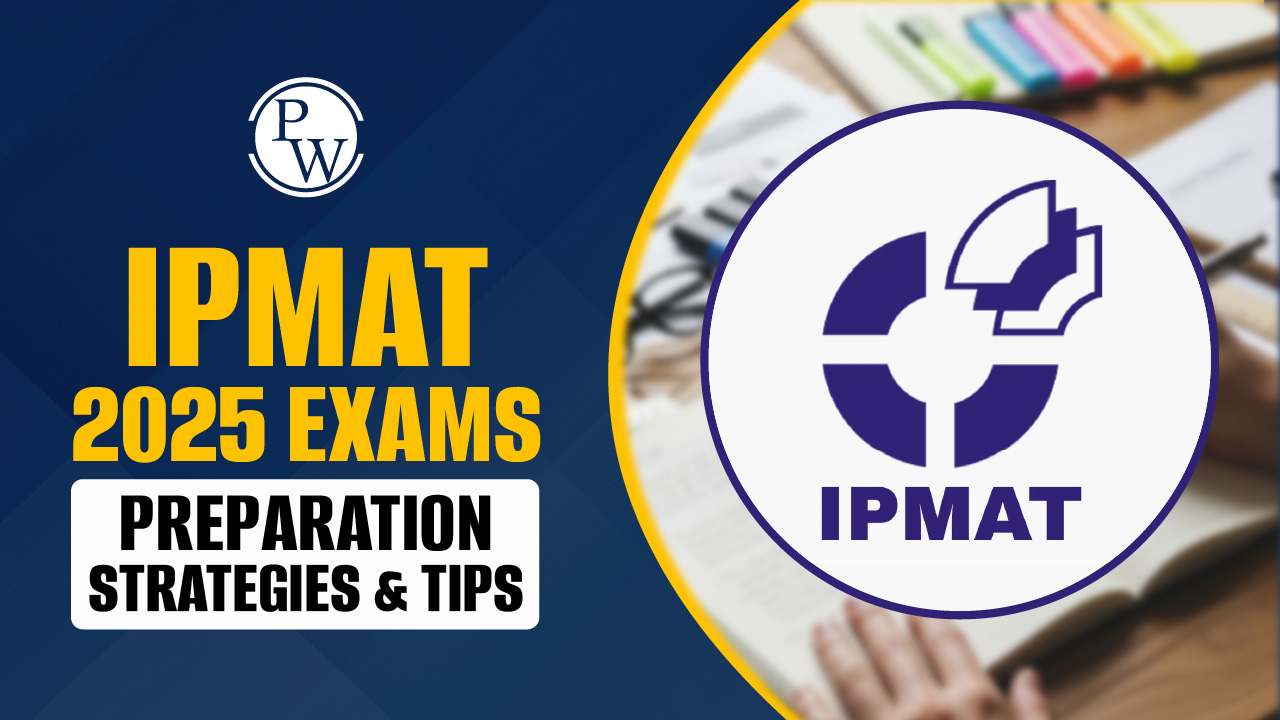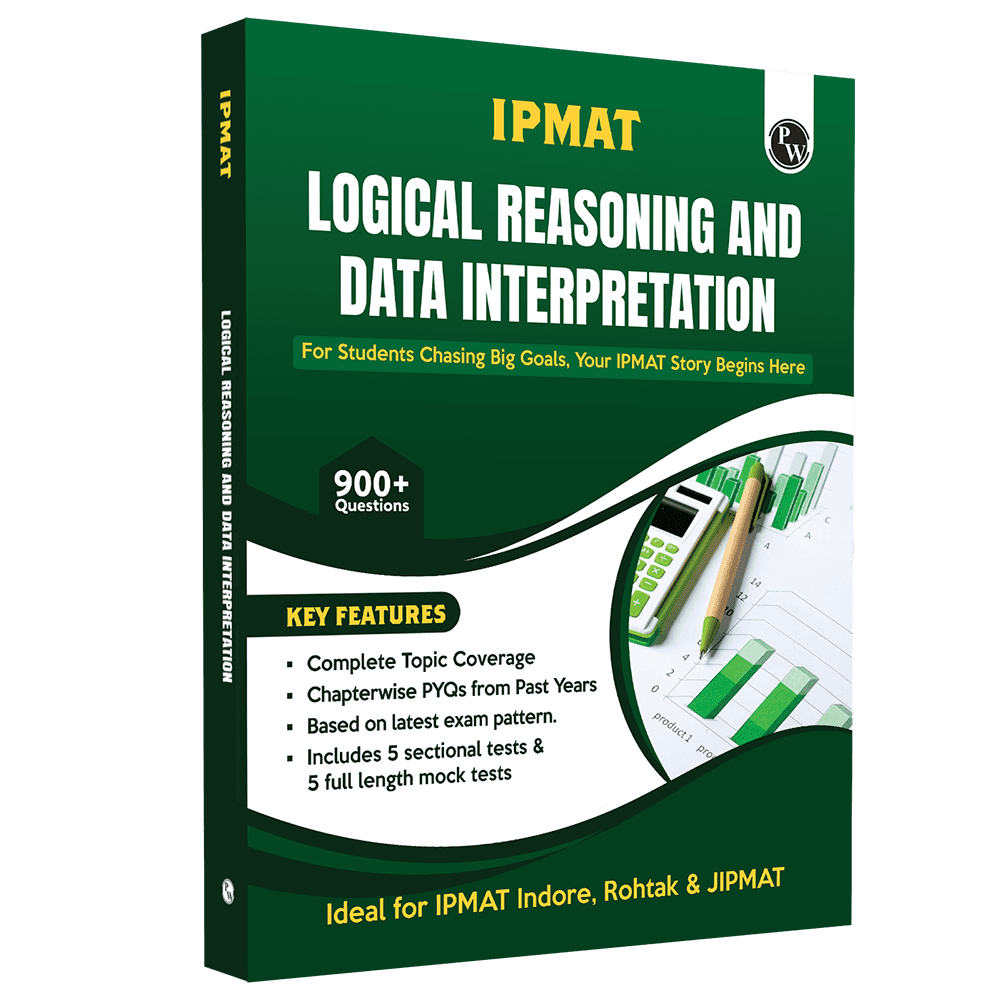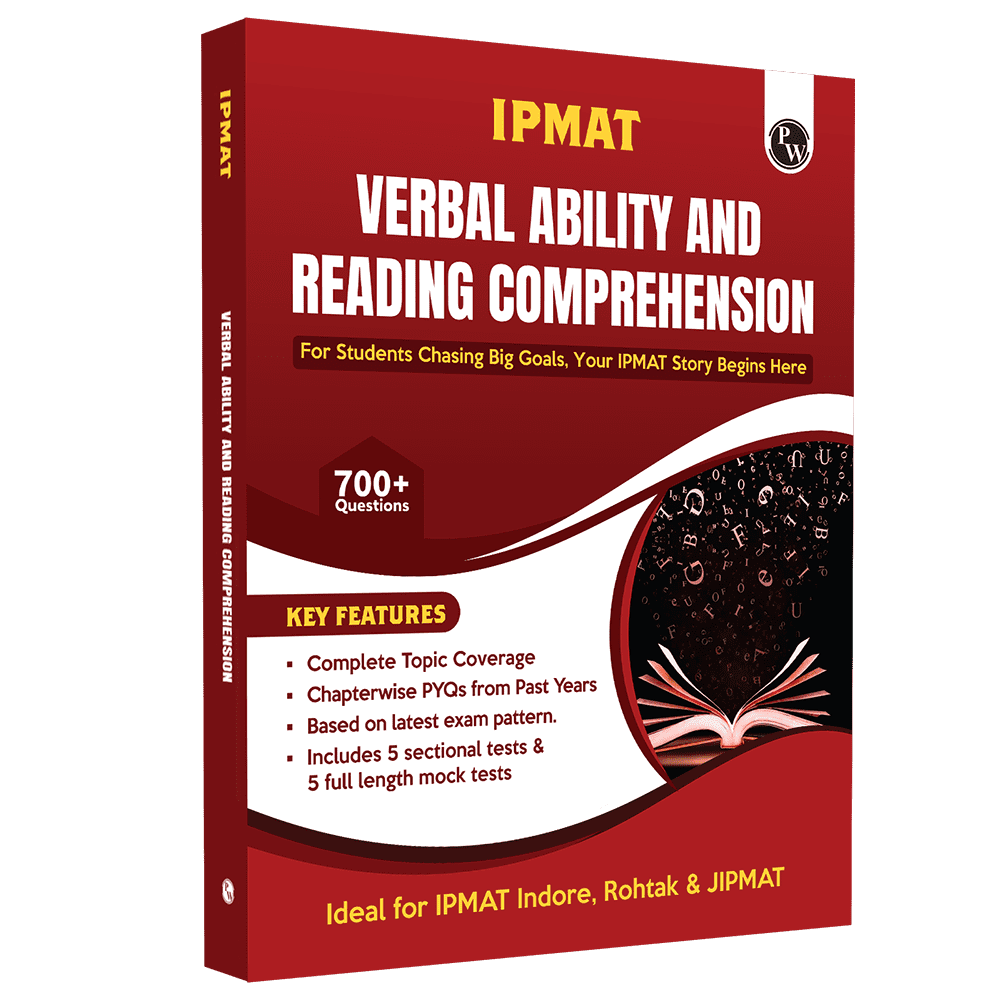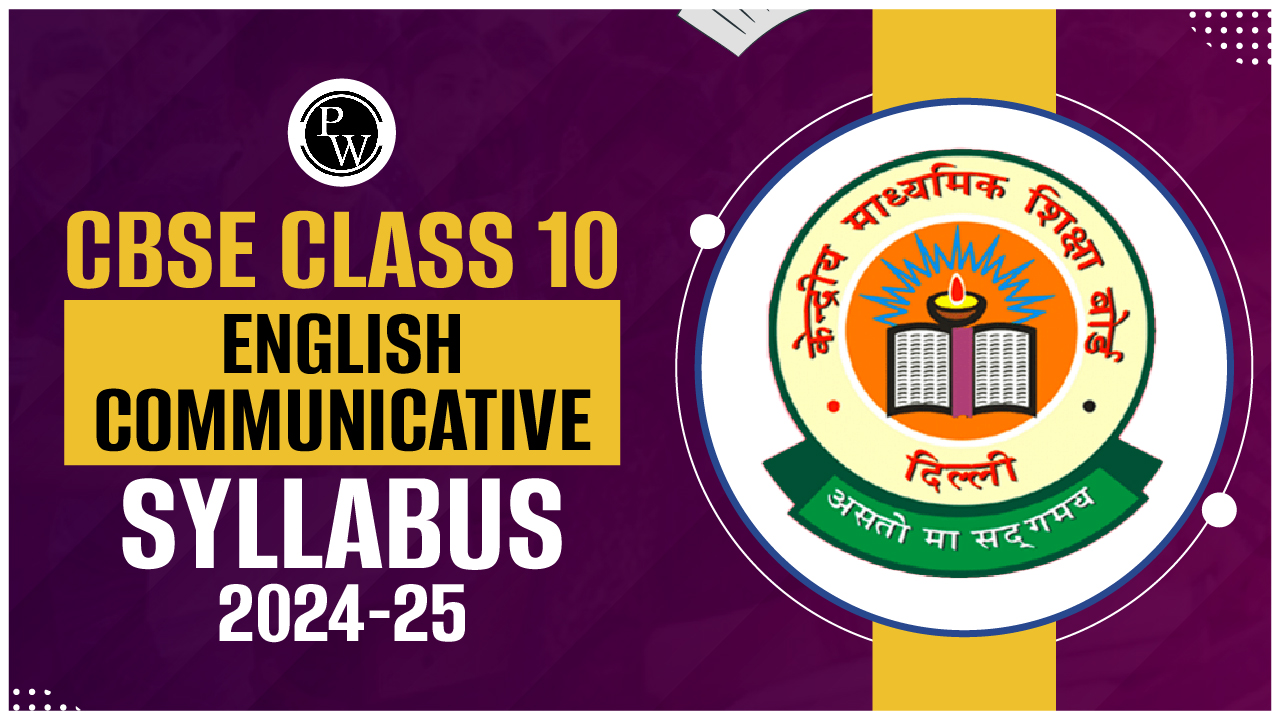IPMAT 2026 Exams - Preparation Strategies & Tips

IPMAT 2025 Exams: The Indian Institute of Management Indore conducts the IPMAT exam for admission to its five-year Integrated Programme in Management (IPM). IPMAT is a national-level entrance test for this unique dual-degree course, which combines a Bachelor’s and a Master’s degree in management. The IPMAT 2025 exam has already been conducted, and now the focus is on IPMAT 2026, which is expected to be held in the second week of May 2026.
The registration for IPMAT 2026 will likely begin in February 2026. If you’re planning to appear for this exam, knowing what IPMAT means and how the exam works is really important for your preparation. Good IPMAT preparation books includes understanding the syllabus, exam pattern, and practising as much as you can to get comfortable with the type of questions asked. You’ll be able to fill out the application form online on the official IIM Indore website, iimidr.ac.in, using your email and mobile number.
What is IPMAT?
IPMAT allows students to secure admission into a top IIM right after Class 12, without waiting for CAT after graduation. It’s a golden opportunity for those who are clear about pursuing a career in management. Check out the basic IPMAT details below:-
|
Feature |
Details |
|
IPMAT Full Form |
Integrated Programme in Management Aptitude Test |
|
Conducting Body |
IIM Indore |
|
Exam Level |
National |
|
Exam Frequency |
Annual |
|
Mode of Exam |
Online |
|
Syllabus |
Quantitative Ability, Verbal Ability |
|
Number of Sections |
3 |
|
Exam Pattern |
Multiple-choice questions (MCQs) & Short Answer Type Questions |
|
Marking Scheme |
+4 for correct answer, -1 for incorrect answer |
|
Language |
English |
|
Duration |
2 hours |
|
Course Offered |
Integrated Management Programme (BBA + MBA) |
|
Official Website |
iimidr.ac.in |
IPMAT Exam Pattern 2026
The IPMAT 2026 exam will be conducted in an online mode and will include three sections designed to test a candidate’s aptitude in mathematics and English. These sections will be: Quantitative Ability (MCQ), Quantitative Ability (Short Answer), and Verbal Ability (MCQ). The exam will follow a fixed pattern in terms of the number of questions, marking scheme, and duration. Understanding the exam pattern is crucial for focused preparation and effective time management.
|
Section |
Number of Questions |
Type of Questions |
Marks per Question |
Negative Marking |
Time Allotted |
|
Quantitative Ability (MCQ) |
20 |
Multiple Choice Questions |
4 |
-1 |
40 minutes |
|
Quantitative Ability (Short Answer) |
10 |
Short Answer Type |
4 |
No negative marking |
40 minutes |
|
Verbal Ability (MCQ) |
30 |
Multiple Choice Questions |
4 |
-1 |
40 minutes |
IPMAT Important Topics 2026
IPMAT 2026 will test candidates on key areas across Quantitative Ability (MCQ and Short Answer) and Verbal Ability. The exam will focus on examining mathematical concepts, logical reasoning, and English language skills. To score well, aspirants must focus on specific high-weightage topics that frequently appear in the exam. Below is a detailed table listing the important topics that will be covered in each section of IPMAT 2026.
|
Section |
Important Topics |
|
Quantitative Ability (MCQ) |
Number System, Percentages, Profit & Loss, Time, Speed & Distance, Time & Work, Averages, Ratio & Proportion, Simple & Compound Interest, Geometry, Mensuration, Permutation & Combination, Probability, Data Interpretation |
|
Quantitative Ability (Short Answer) |
Algebra, Arithmetic Word Problems, Linear and Quadratic Equations, Set Theory, Logical Reasoning, Venn Diagrams |
|
Verbal Ability |
Reading Comprehension, Vocabulary (Synonyms, Antonyms), Sentence Completion, Para Jumbles, Grammar (Tenses, Prepositions, Subject-Verb Agreement), Error Spotting, Fill in the Blanks |
How to Crack IPMAT 2026?
If you're planning to take the IPMAT exam, it's natural to feel a little overwhelmed in the beginning. But with the right approach and resources, your IPMAT preparation can be smooth and effective. Whether you're just starting out or looking to sharpen your strategy, here’s a step-by-step guide to help you prepare confidently.
1. Understand the IPMAT and Exam Pattern
Knowing the exam pattern and marking scheme will help you prepare smartly without wasting time on unnecessary topics. IPMAT stands for Integrated Programme in Management Aptitude Test, an entrance exam for a five-year management course. The exam is divided into three sections: Quantitative Ability (MCQs), Quantitative Ability (Short Answer), and Verbal Ability (MCQs). You get four marks for each correct answer and lose one mark for wrong answers in the MCQ sections. The short answer questions have no negative marking.
-
The exam consists of three sections with a mix of MCQs and short-answer questions.
-
Each correct MCQ is awarded 4 marks, with a penalty of 1 mark for wrong answers.
-
The exam duration is 2 hours, so managing time effectively is crucial.
2. Get a Clear Overview of the Syllabus and Important Topics
Once you know the pattern, carefully study the syllabus and important topics for IPMAT. This will help you focus your efforts on the right areas. Quantitative Ability includes topics like percentages, algebra, number systems, and geometry. Verbal Ability covers reading comprehension, grammar, vocabulary, and para jumbles. Knowing which topics carry more weight helps you prioritise your study time and avoid spreading yourself too thin.
-
Focus on frequently tested topics like arithmetic, algebra, and reading comprehension.
-
Break topics into easy, moderate, and difficult categories for better planning.
-
Regularly check past papers to spot important chapters and question types.
3. Create a Realistic and Consistent Study Plan
A well-structured study plan is key to success. Your plan should be realistic and fit your daily routine so that you can follow it consistently. A balanced plan with regular revision and practice tests will build your confidence over time.
-
Dedicate at least 2–3 hours daily to IPMAT preparation and increase gradually.
-
Allocate specific days for different subjects and include revision sessions weekly.
-
Track your progress weekly to stay on schedule and adjust your plan if needed.
4. Focus on Concept Clarity Before Speed
Many students rush to solve questions quickly but without clear understanding, this leads to mistakes. It is better to first master the concepts and formulas thoroughly. This way, you can solve problems correctly and build speed naturally. Avoid guessing answers, especially in MCQs, because wrong guesses will reduce your score due to negative marking.
-
Learn all important formulas and grammar rules before attempting mocks.
-
Solve examples carefully to understand the logic behind each question.
5. Take Mock Tests and Analyse Your Performance
Mock tests give you a real exam feel and help you improve time management. But the real benefit comes from analysing your performance after the test. Identify weak areas and work on them consistently. Taking regular mock tests also builds your confidence and helps reduce exam anxiety.
-
Take at least one mock test every week and increase frequency before exams.
-
Review wrong answers carefully and understand your mistakes.
6. Revise Regularly and Strengthen Weak Areas
Revision is essential to keep concepts fresh in your mind. Regularly revisiting topics helps reduce forgetting and improves your accuracy. Also, focus more on the topics you find difficult. Using flashcards or short notes for quick revision saves time and boosts memory.
-
Set aside time each week to revise all studied topics.
-
Focus extra time on weak areas by practicing more problems in those topics.
-
Use quizzes or discuss with friends to test your knowledge regularly.
IPMAT Study Materials
PW IPMAT study materials cover all important topics with clear concepts, examples, and exercises to build strong fundamentals. They include chapter-wise previous year questions for targeted practice and follow the latest exam pattern to keep you updated. You will get 5 sectional tests for focused preparation and 5 full-length mock tests to simulate the real exam. With over 2800 questions, these materials provide numerous practice questions to improve your performance in IPMAT 2026.
|
IPMAT Logical Reasoning and Data Interpretation |
|
|
IPMAT Quantitative Aptitude Topicwise Coverage |
|
|
IPMAT Verbal Ability and Reading Comprehension |
|
|
IPMAT Higher Mathematics Topicwise Coverage |
Common Mistakes to Avoid While Preparing for IPMAT 2026
-
Not Understanding IPMAT Meaning and Exam Pattern: Many aspirants start their IPMAT preparation without fully understanding the IPMAT meaning, exam pattern, syllabus, and marking scheme. This lack of clarity leads to ineffective study plans and wasted effort.
-
Poor Time Management During Preparation: Without practicing proper time management, candidates often spend too much time on difficult questions or focus unevenly on different sections. Good time management is essential for successful IPMAT exam preparation.
-
Overloading with Too Many IPMAT Preparation Books: Referring to too many IPMAT preparation books and resources can overwhelm students and scatter their focus. It’s better to stick to a few trusted books and previous year question papers for better results.
-
Guessing Answers Despite Negative Marking: IPMAT has negative marking, so blind guesswork can reduce your overall score. Candidates should avoid guessing and attempt questions only when confident during their IPMAT preparation.
-
Skipping Mock Tests or Ignoring Their Analysis: Mock tests are a key part of IPMAT exam preparation. Not taking enough mocks or failing to analyse errors prevents identifying weak areas and improving speed and accuracy, which are crucial for exam success.
Read More: IPMAT Syllabus 2026
IPMAT Preparation Tips FAQs
1. What is IPMAT?
IPMAT stands for Integrated Programme in Management Aptitude Test. It is an entrance exam for admission to the 5-year management course at IIM Indore.
2. What is the exam pattern for IPMAT 2026?
The exam has three sections: Quantitative Ability (MCQ) with 25 questions, Quantitative Ability (Short Answer) with 25 questions, and Verbal Ability (MCQ) with 50 questions. Each section has 40 minutes, totaling 2 hours. Each correct answer gives 4 marks, and 1 mark is deducted for wrong answers.
3. What are the eligibility criteria for IPMAT 2025?
Candidates must have completed 10+2 with at least 60% marks (55% for reserved categories). The age limit is usually 20 years by July 31, 2025, with some relaxation for reserved groups. Students appearing for 12th in 2025 can also apply.
4. How should I prepare for IPMAT 2025?
Understand the exam pattern well. Make a study plan dividing time for each section.
5. Is coaching necessary for IPMAT preparation?
Coaching is not compulsory. Some students do well with self-study using good books and online materials. Choose what works best for you.










